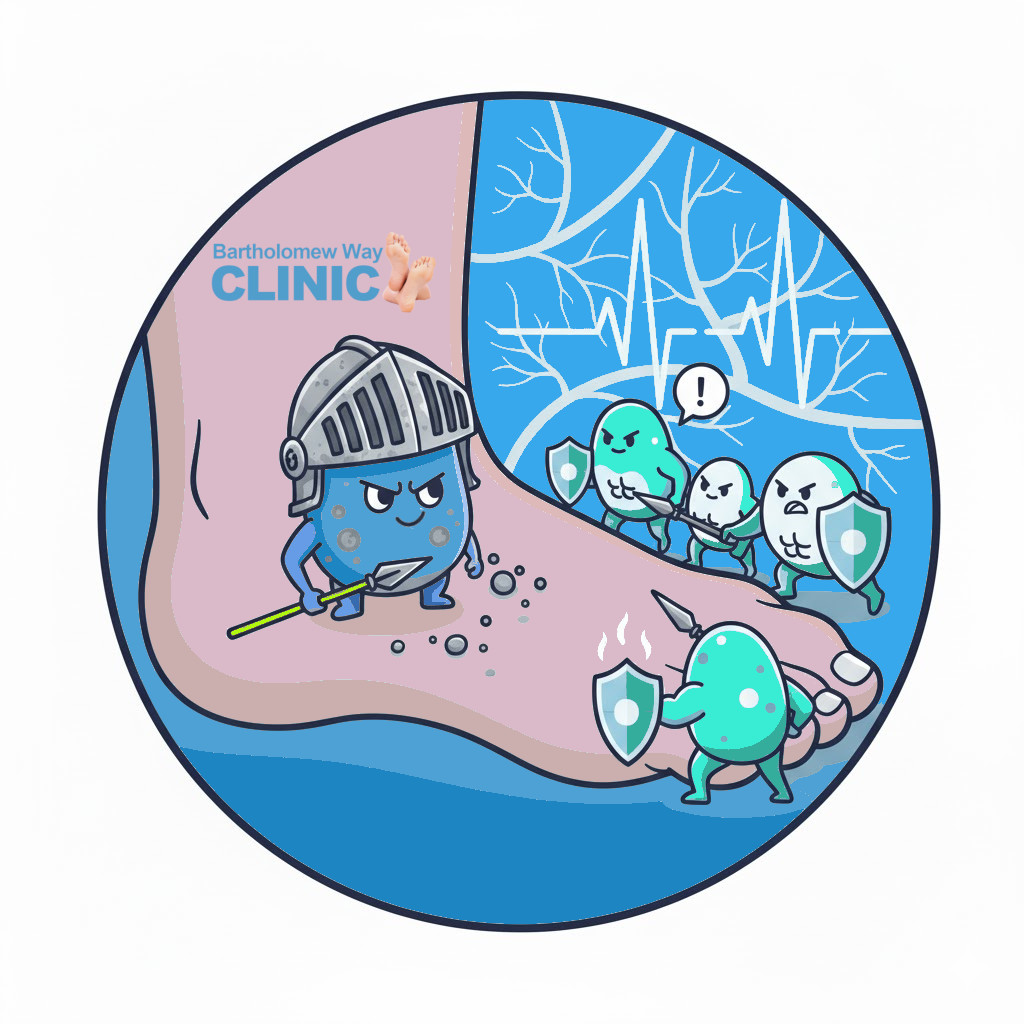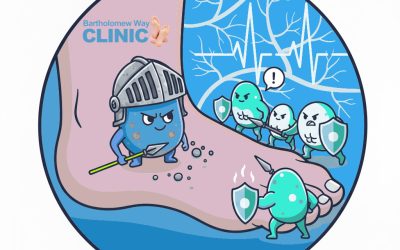Verruca Treatments
Almost everyone has encountered a verruca at some point in their lives
These stubborn, often painful lesions can be notoriously difficult to get rid of, leading to months or even years of frustration with over-the-counter treatments.
But why are they so persistent? Understanding the nature of a verruca is the first step toward effectively treating it.
Surprising Facts About Your Verruca
A verruca is much more complex than a simple patch of hard skin. Here are some key facts:
- It’s a Virus: A verruca is caused by the Human Papillomavirus (HPV). Like any virus, its mission is to survive and replicate, and it uses your skin as the perfect host.
- It Hides from Your Immune System: The virus is incredibly adept at going unnoticed by your body’s natural defences, which is why it can linger for so long without being resolved.
- It’s Highly Contagious: Verrucas can spread easily, and improper home treatment can sometimes lead to cross-infection, causing more verrucas to appear on your feet or even on other family members.
- It Can Lie Dormant: The virus can remain in your system long after the physical signs are gone, sometimes reappearing during periods of high stress or fatigue when your immune system is compromised.
The Goal of Treatment is likely to be an Immune Response
The primary aim of professional verruca treatment is not just to destroy the lesion itself, but to stimulate your body’s own immune system to finally recognise the virus and launch an attack. By creating a controlled response, we teach your body to fight back and overcome the infection for good.
A Personalised Treatment Plan: The Three ‘P’s
Here at the clinic, we have a wide range of advanced treatment options. The best path for you will depend on a simple framework we call the Three ‘P’s:
- PAIN: How much discomfort or pain is the verruca causing in your daily life?
- PURSE: What is your budget for treatment? We offer solutions to suit different financial investments in your health.
- PATIENCE: Effective treatment requires perseverance. Are you ready to commit to a plan until we achieve full resolution?
Take the Next Step
If you’re tired of the endless cycle of ineffective treatments, we are here to help you on your mission to eradicate verrucae. Contact us today to schedule a consultation, and let’s build a personalised plan that works for you.

RELATED POSTS
Are Your Legs Trying to Tell You Something? Don’t Ignore the Signs of PAD.
...Or perhaps you've noticed some unusual changes to the skin or nails on your feet and lower legs? These might not be simple signs of ageing; they could be your body's way of signalling a common condition known as Peripheral Arterial Disease (PAD). PAD occurs when...
Plantar Plate Tears
A plantar plate tear is an injury to the fibrocartilage tissue that supports the bones in the ball of the foot. The plantar plate is located at the base of the toes and helps to maintain the stability and alignment of the bones in the forefoot. When the plantar plate...



